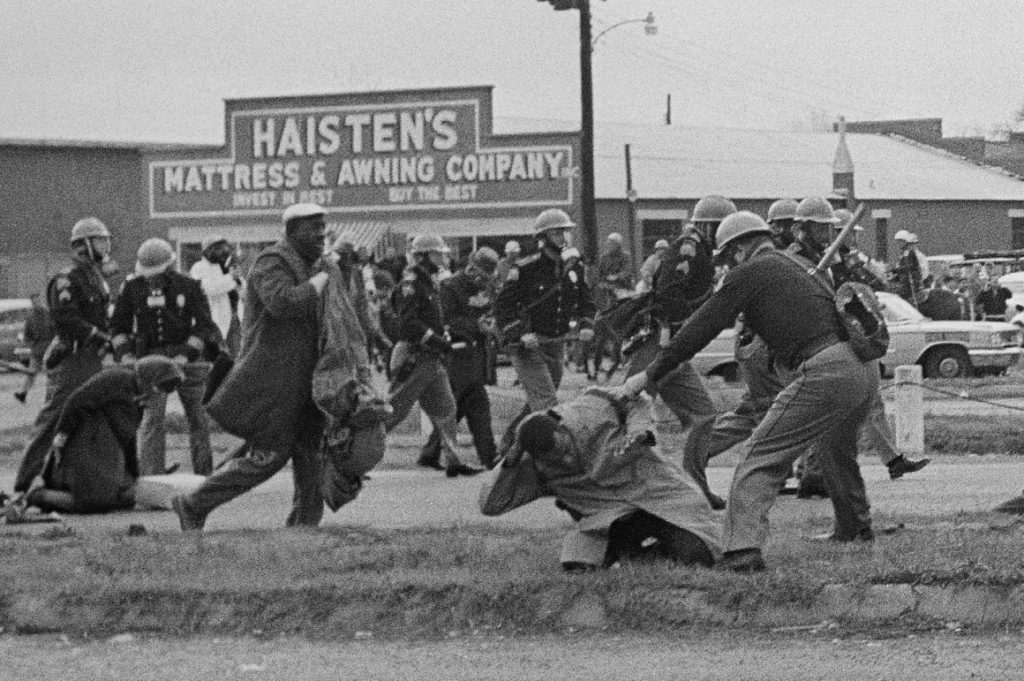Rush Limbaugh recently said that John Lewis would not have suffered a fractured skull at Selma if he had been armed. That is a profound misunderstanding of just about everything that could be understood about Bloody Sunday or the Civil Rights Movement more generally. John Lewis’s fractured skull, while not exactly the plan, was the key to the success of Selma.
On March 7, 1965 — a day that would become known as “Bloody Sunday” — Lewis and fellow activist Hosea Williams led over 600 marchers across the Edmund Pettus Bridge in Selma, Alabama. At the end of the bridge, they were met by Alabama State Troopers, who ordered them to disperse. When the marchers stopped to pray, the police discharged tear gas and mounted troopers charged the demonstrators, beating them with night sticks. Lewis’s skull was fractured, but he escaped across the bridge, to a church in Selma. Before he could be taken to the hospital, John Lewis appeared before the television cameras calling on President Johnson to intervene in Alabama.
Scenes of the violence, and of the injured John Lewis, were broadcast around the world, and outraged public opinion demanded that the President take action. Two days later, Dr. King led 1,000 members of the clergy on a second march from Selma to Montgomery, with the eyes of the world watching. A week and a day after Bloody Sunday, President Johnson appeared before a joint session of Congress to demand passage of the Voting Rights Act, empowering the federal government to enforce the voting rights of all Americans. The passage of the voting rights act finally brought the federal government into the struggle, squarely on the side of the disenfranchised voters of the South.
John Lewis’s skull fracture hastened the passage of the Voting Rights Act, which may not have passed otherwise for many years. His personal courage and sacrifice are so immense, and so many people are indebted to him, including me, that Rush Limbaugh really shouldn’t utter his name, unless it is to pay him the deep respect that he deserves.
To call him the greatest living American would not be hyperbole, for who would we put before him?
He accomplished through peaceful means what years of armed struggle would never have achieved. What’s unusual is that, unlike others in his category, like Socrates and Jesus and Lincoln and Gandhi and Martin Luther King Jr., he lived to tell about it. He’s still serving in Congress, doing his little part each day. But he is so much more than a congressman. He’s a giant who doesn’t get the credit he deserves simply because he wasn’t martyred and because he’s too humble to demand it.
